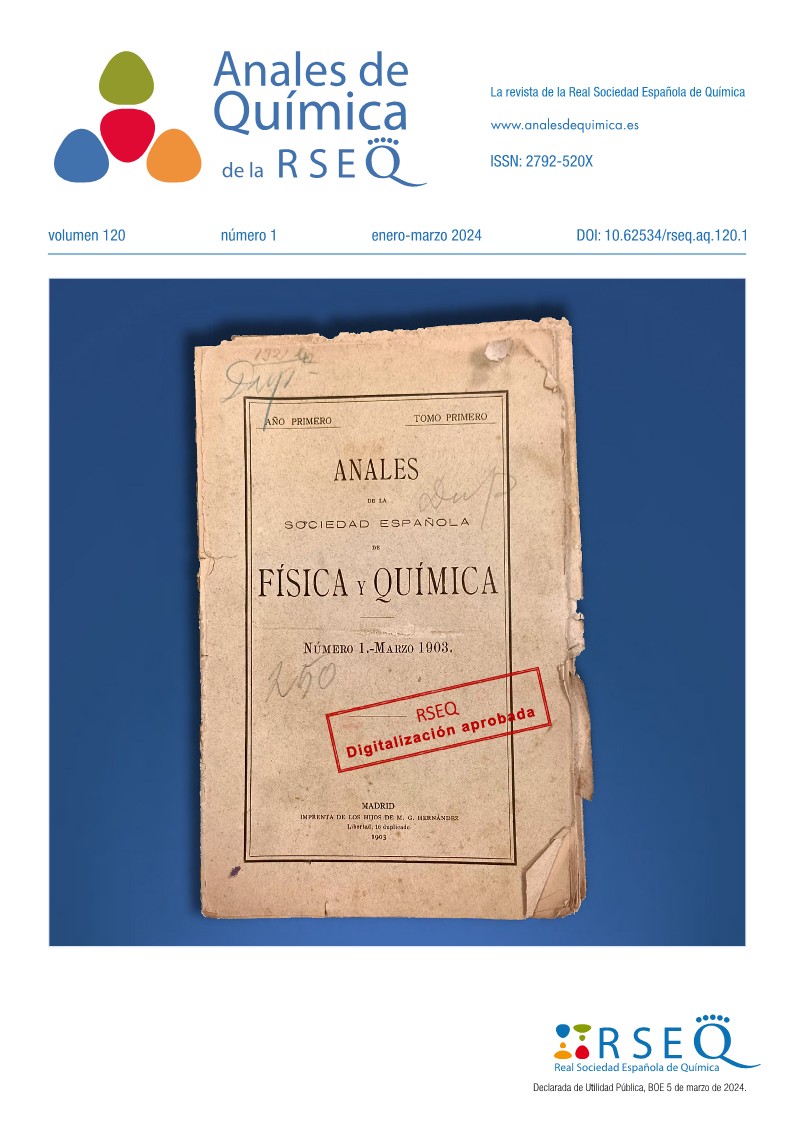Abstract
Oxidative addition is a cornerstone process in organometallic chemistry that plays a pivotal role as a key stepin numerous transition-metal-catalyzed coupling reactions. Recent years have witnessed the emergence of bismuth as amain-group element capable of mimicking and complementing the ability of transition metals to engage in redox catalytic cycles. These processes are also driven by oxidative-addition reactions, which can occur at both Bi(I) and Bi(III) centers. This review article aims to summarize some of the most relevant studies on oxidative addition into well-defined bismuth complexes, paving the way for the development of the rapidly evolving field of bismuth redox catalysis.

This work is licensed under a Creative Commons Attribution-NonCommercial-ShareAlike 4.0 International License.
Copyright (c) 2024 Anales de Química de la RSEQ


